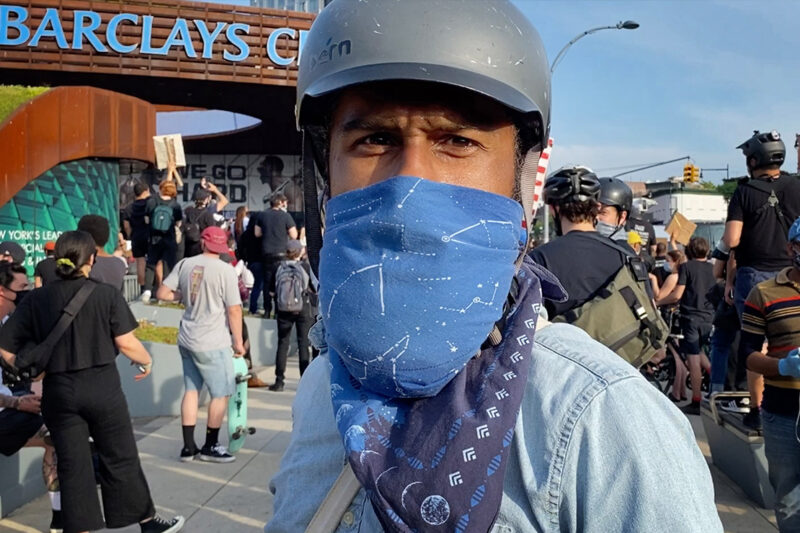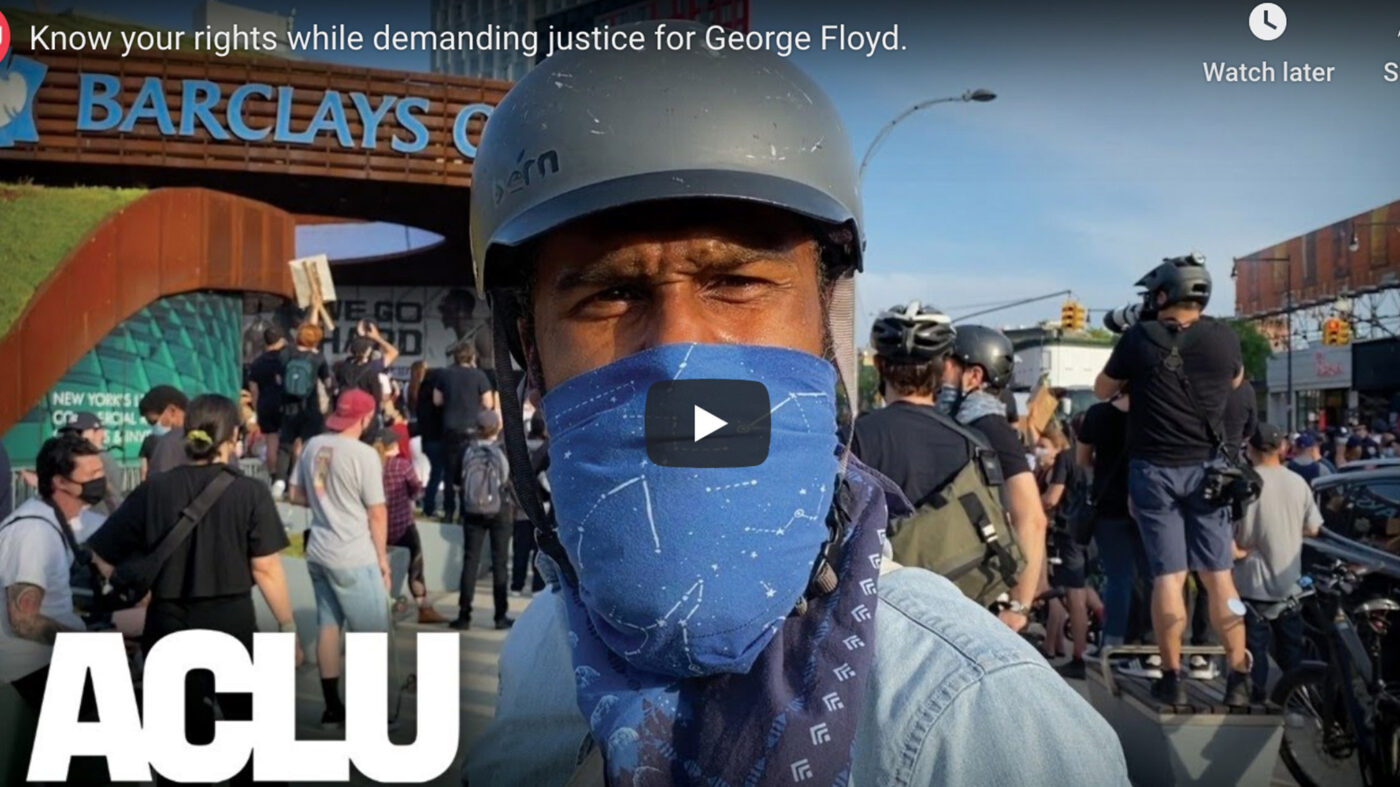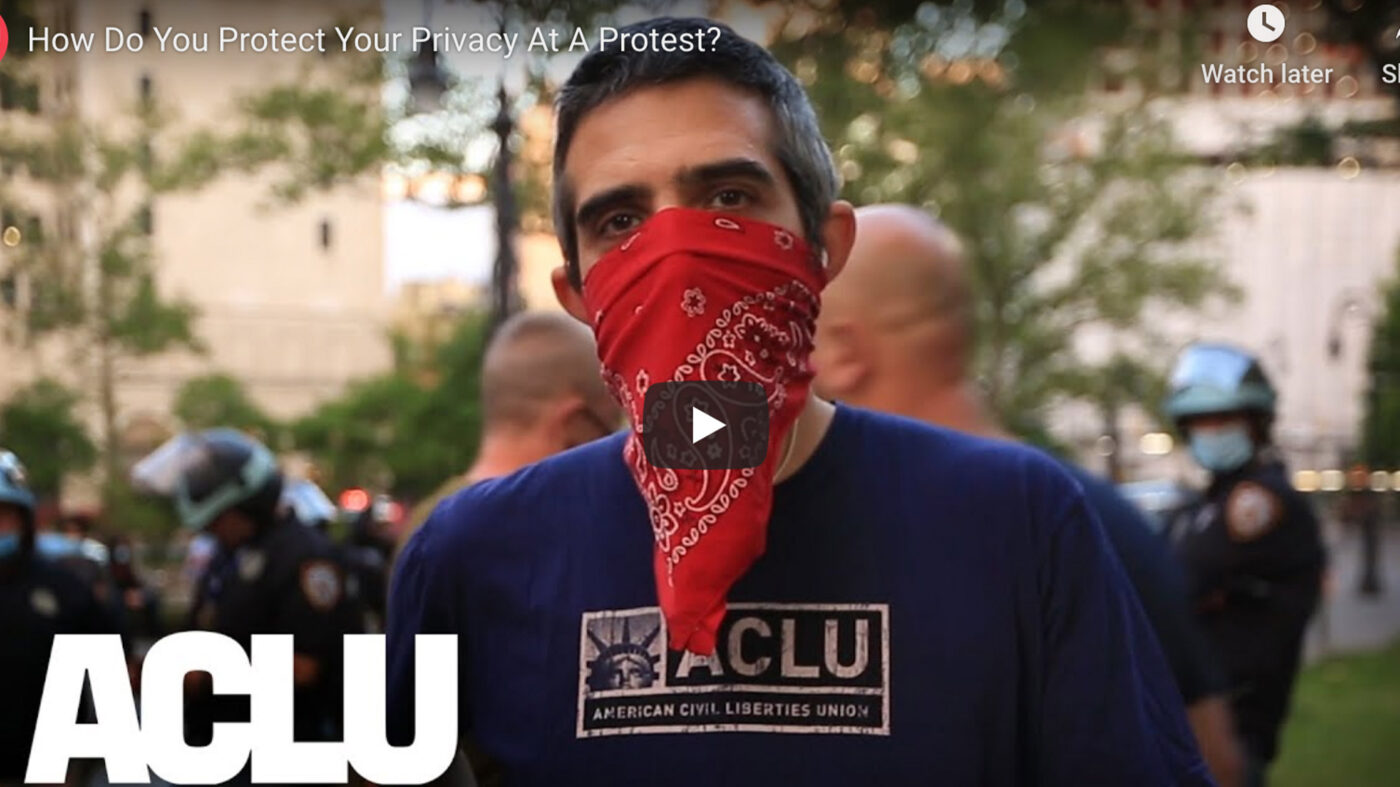Know Your Rights While Protesting Police Brutality


The right to protest is fundamental to our democracy and enshrined in the First Amendment to the U.S. Constitution. In response to the death of George Floyd at the hands of Minneapolis police, people across the country have taken to the streets to demand racial justice and an end to police brutality and systematic racism against Black people.
Especially in the time of COVID-19, it’s important to know your rights and stay safe while protesting. In the following videos, ACLU experts outline your rights while protesting, including how to keep yourself and your devices safe.
In this video taken at a protest against police brutality in Brooklyn, New York, Emerson Sykes, staff attorney for the ACLU's Speech, Privacy, & Technology Project, shares important information on how to protect yourself and others while protesting – and what rights you have when interacting with police.

In this video taken at another protest against police brutality in Brooklyn, Daniel Kahn Gillmor, senior staff technologist for the ACLU’s Speech, Privacy, & Technology project, shares how to protect yourself and your devices from police surveillance while protesting.

As you come out to protest, here's what our video notes to keep in mind:
1. The right to protest is a fundamental human right guaranteed by the U.S. Constitution and the First Amendment.
2. If you get stopped, ask if you are free to go. If the police say yes, walk away.
3. You have the right to record. The right to protest includes the right to record, including recording police doing their jobs.
4. The police can order people to stop interfering with legitimate police operations, but video recording from a safe distance is not interfering.
5. If you get stopped, police cannot take or confiscate any videos or photos without a warrant.
6. If you are videotaping, in some states, the audio is treated differently than the images. But images and video images are always fully protected by the First Amendment.
7. If you get arrested, don’t say anything. Ask for a lawyer immediately. Do not sign anything and do not agree to anything without an attorney present.
8. If you get arrested, demand your right to a local phone call. If you call a lawyer for legal advice, law enforcement is not allowed to listen.
9. Police cannot delete data from your device under any circumstances.
To keep your device secure and maintain your privacy while protesting, here’s what Daniel recommends you do:
1. Wear a mask to protect you from facial recognition used by police.
2. Ensure your devices have strong passwords, either six digits or a full password.
3. Avoid using biometrics like face or fingerprint recognition to unlock your phone that police can use to unlock your phone for you or you risk exposing your data and information about your loved ones.
4. Keep your phone in airplane mode when you don’t need to communicate. Radio signals can be used by law enforcement to track your device.
5. If you do have to communicate, use encrypted messaging apps.
6. If you get arrested, make sure your device is turned off or locked with a secure password.
7. Do not accept a water, soda, or a cigarette from the police – this is a common trick used to collect DNA samples.


